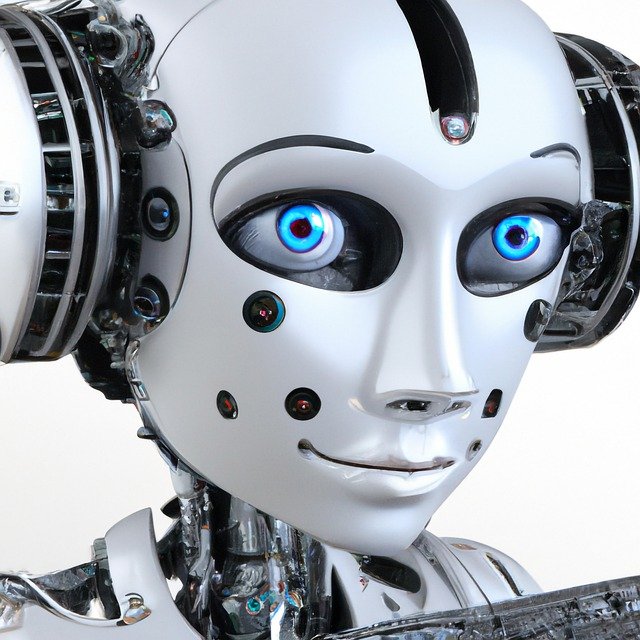The Impact of Artificial Intelligence on Modern Business: A Game-Changer for the Corporate World
In recent years, there has been a rapid advancement in technology, specifically in the field of artificial intelligence (AI). This has brought about significant changes in various industries, including business. AI has the potential to transform the way businesses operate, making them more efficient and competitive in the market. In this article, we will delve into the impact of AI on modern business and how it is revolutionizing the corporate world.
The Rise of AI in Business Operations
Artificial intelligence is a broad term that encompasses various technologies, such as machine learning, natural language processing, and robotics. These technologies have the ability to analyze vast amounts of data, learn from it, and make decisions without human intervention. This has made AI a valuable tool for businesses, as it can automate processes, improve decision-making, and enhance overall efficiency.
One of the main areas where AI is transforming business is in operations. With the help of AI, businesses can automate repetitive and time-consuming tasks, freeing up employees to focus on more critical and creative work. This not only increases productivity but also reduces the risk of errors. For example, AI-powered chatbots can handle customer inquiries and complaints, freeing up customer service representatives to handle more complex issues.
AI is also being used to optimize supply chain management. By analyzing data from various sources, such as sales forecasts, inventory levels, and customer demand, AI can help businesses make more accurate and timely decisions regarding inventory management, production planning, and logistics. This can lead to cost savings and improved customer satisfaction.
The Role of AI in Decision-Making
Another significant impact of AI on business is in decision-making. Traditional decision-making processes are often based on human intuition and experience, which can be biased and prone to errors. With AI, businesses can make data-driven decisions, taking into account a vast amount of information and variables.
AI-powered tools, such as predictive analytics, can analyze historical data and make predictions about future trends and outcomes. This can help businesses make more informed decisions regarding product development, marketing strategies, and financial management. For instance, AI can analyze customer data to identify patterns and preferences, helping businesses tailor their products and services to meet the needs of their target audience.
Moreover, AI can also assist in risk management. By analyzing data and identifying potential risks, businesses can take proactive measures to mitigate them. This can be particularly useful in industries such as finance and insurance, where risk assessment is crucial. AI-powered tools can analyze market trends and customer data to identify potential risks and suggest strategies to minimize them.
The Impact of AI on Customer Experience
In today’s highly competitive business landscape, providing a seamless and personalized customer experience is crucial for success. This is where AI comes in. By analyzing customer data, AI can help businesses understand their customers better and provide them with a more personalized experience.
One way AI is transforming customer experience is through chatbots. These AI-powered tools can interact with customers in real-time, providing them with immediate assistance and support. This not only improves customer satisfaction but also reduces the workload on customer service representatives.
Moreover, AI can also assist in personalizing marketing strategies. By analyzing customer data, AI can identify patterns and preferences, allowing businesses to tailor their marketing messages and offers to specific segments of their target audience. This can lead to higher conversion rates and increased customer loyalty.
The Future of Business with AI
As AI continues to advance, its impact on business is only going to increase. In the future, we can expect to see more businesses adopting AI-powered tools and technologies to improve their operations, decision-making, and customer experience.
One area where AI is expected to make significant progress is in the field of robotics. With the development of advanced robotics and machine learning, we can expect to see more businesses using robots to automate tasks such as manufacturing, packaging, and delivery. This can lead to increased efficiency and cost savings.
Moreover, with the rise of big data and the Internet of Things (IoT), AI will have access to even more data, making it more powerful and useful for businesses. This will enable AI to make more accurate predictions and decisions, further enhancing its impact on business operations.
In conclusion, AI is transforming the way businesses operate, make decisions, and interact with customers. Its ability to automate processes, improve decision-making, and personalize customer experience makes it a game-changer for the corporate world. As AI continues to advance, businesses that embrace it will have a competitive advantage over those that do not. It is clear that AI is here to stay and will continue to shape the future of business.










